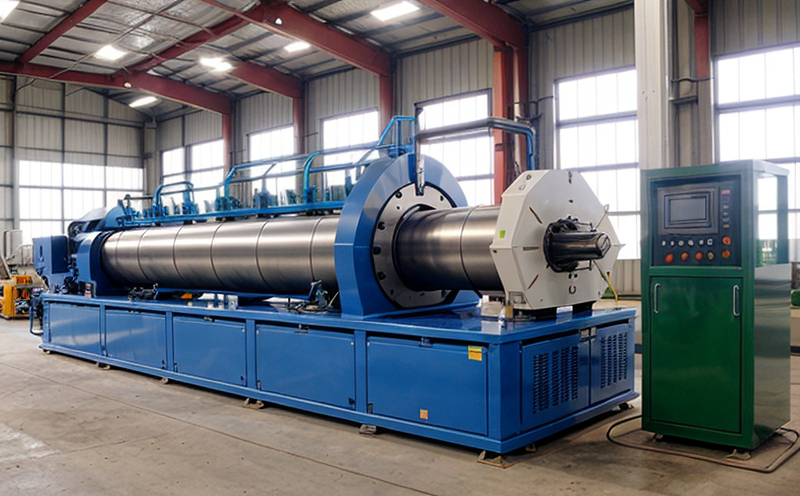ISO 14044 Environmental Impact Assessment of Recycling Processes
The ISO 14044 standard provides a framework to assess and communicate environmental impacts associated with products, processes, and services. This service focuses on the application of this standard in evaluating the environmental impact of recycling processes. The process involves lifecycle assessment (LCA) methodologies to identify, quantify, and evaluate potential environmental effects over the entire lifecycle of a product or material.
The service begins by collecting detailed data about the raw materials used, energy consumption throughout the recycling process, emissions generated, waste produced, resource recovery rates, and other relevant parameters. This comprehensive dataset is then analyzed using LCA methodologies to determine the overall environmental impact of the recycling process.
Key components of this assessment include:
- Inventory analysis: Identifying all inputs and outputs throughout the lifecycle.
- Impact assessment: Evaluating these inputs and outputs against predefined environmental indicators.
- Improvement opportunities: Providing actionable insights to reduce negative impacts.
The service also includes detailed reporting tailored to your specific needs, which can be used for regulatory compliance, internal decision-making, or stakeholder communication. The report will include all necessary calculations and data points required by ISO 14044, ensuring transparency and credibility of the assessment.
By adhering strictly to this standard, businesses in the waste management sector can ensure that their recycling processes are as environmentally friendly as possible. This service not only helps meet regulatory requirements but also enhances corporate social responsibility (CSR) initiatives by demonstrating a commitment to sustainability.
| Step | Action | Outcome |
|---|---|---|
| Data Collection | Gather detailed information on raw materials, energy use, emissions, and waste. | A complete dataset for lifecycle assessment. |
| Inventory Analysis | Analyze the data to identify all inputs and outputs throughout the lifecycle. | Identification of key environmental impacts. |
| Impact Assessment | Evaluate these inputs and outputs against predefined indicators. | Quantification of environmental effects over the lifecycle. |
| Improvement Opportunities | Provide actionable insights to minimize negative impacts. | Actionable recommendations for process improvements. |
The service ensures compliance with international standards such as ISO 14044, providing a robust foundation for environmental management. This approach helps organizations not only meet regulatory requirements but also enhance their reputation among environmentally conscious consumers and stakeholders.
Quality and Reliability Assurance
The quality and reliability of the results obtained from this service are paramount in ensuring that the recycling processes are truly sustainable and efficient. Our team of experts uses state-of-the-art equipment and follows rigorous protocols to ensure accuracy and consistency.
We employ advanced analytical techniques, including but not limited to spectroscopy, chromatography, and thermogravimetric analysis (TGA), to measure various parameters such as material purity, energy efficiency, and emission levels. These methods are chosen based on their ability to provide precise measurements that can be directly linked back to the environmental impact assessment.
The reliability of our results is further ensured through regular calibration of our instruments and continuous training of our personnel. This ensures that all tests are conducted under controlled conditions, minimizing variability and ensuring reproducibility. The use of international standards such as ISO 14044 also guarantees consistency with global best practices.
Our commitment to quality does not stop at the technical aspects of the testing process. We ensure that our reports are clear, concise, and easy to understand, providing actionable insights for decision-makers. This transparency helps stakeholders make informed choices about their waste management strategies, ultimately contributing to a more sustainable future.
Environmental and Sustainability Contributions
The implementation of ISO 14044 in recycling processes significantly contributes to environmental sustainability by providing a structured approach to managing the environmental impact of these operations. This service helps businesses reduce their carbon footprint, conserve resources, and minimize waste generation.
By conducting lifecycle assessments, organizations can identify areas where they can implement process improvements that lead to reduced emissions, lower energy consumption, and increased resource recovery rates. These changes not only benefit the environment but also contribute positively to a company's bottom line by reducing operational costs.
The results of this service are widely applicable across various sectors, including manufacturing, construction, and electronics, where recycling plays a crucial role in waste management strategies. For instance, in the electronics industry, the service can help manufacturers design products that are easier to recycle at the end of their lifecycle, thereby reducing electronic waste.
Moreover, this approach fosters innovation by encouraging companies to explore new technologies and methodologies for improving recycling processes. By staying ahead of regulatory requirements, businesses can gain a competitive advantage in the market while contributing to global sustainability goals.
Use Cases and Application Examples
- Electronics Recycling: Assessing the environmental impact of recycling old electronics such as computers and smartphones.
- Plastic Recycling: Evaluating the sustainability of various plastic recycling methods to ensure compliance with environmental regulations.
- Construction Waste Recycling: Analyzing the lifecycle impacts of recycled construction materials like steel, concrete, and asphalt.
- Metal Recycling: Determining the environmental benefits of different metal recycling processes used in automotive manufacturing.
| Use Case | Environmental Impact Metrics | Improvement Opportunities |
|---|---|---|
| Electronics Recycling | Energy consumption, emissions, and e-waste reduction. | Use more energy-efficient recycling methods to reduce carbon footprint. |
| Plastic Recycling | Greenhouse gas emissions, water usage, and resource depletion. | Implement new technologies that enhance material purity and recycle rates. |
| Construction Waste Recycling | Emissions from transportation, energy use in recycling facilities, and landfill diversion. | Optimize logistics to minimize emissions during transport and improve resource recovery. |
| Metal Recycling | Energy consumption, water usage, and metal purity. | Invest in advanced recycling technologies for higher quality recycled metals. |





